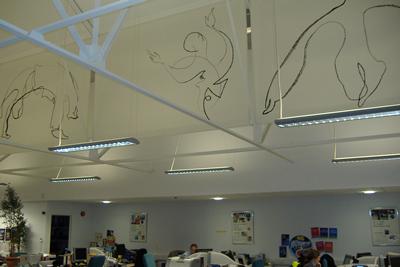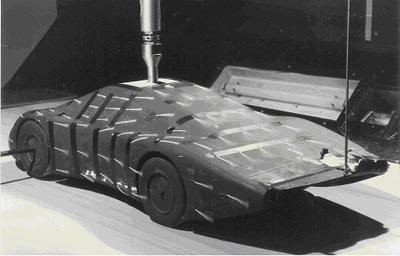Southampton graduates are prized by companies involved in high performance engineering. Alumni work for America’s Cup Yacht and Formula One teams, as well as world-leading aerospace, marine and automotive companies. For example, Adrian Newey, the world’s most successful Formula One car designer, graduated with an Aeronautics and Astronautics degree from Southampton in 1981.


As one of the few universities in the world with an extensive wind tunnel complex, we are able to give students a unique learning experience using industry-leading experimental facilities. Student projects have included developing the British steam land speed record car Bonneville 400 world F1 land speed record car with Honda F1, and the Quicksilver world water speed record contender. We are education partners for the 1000mph BLOODHOUND Supersonic Car project , helping to lead BLOODHOUND@University, aimed at enhancing engineering education. We also house the UK’s most powerful university supercomputer and have additional dedicated supercomputing facility for student project use.
We probably supply more aerodynamicists to the Formula One industry than any other university in the world, with many Ship Science graduates going onto racing yacht and powerboat design.
Undergraduate Courses
Aeronautics & Astronautics BEng & MEng
The Southampton Aeronautics & Astronautics course has been one of the main routes into the Formula One industry. Alumni work for virtually all of the current teams, up to chief aerodynamicist and technical director level. Aeronautics and Astronautics encompasses a broad range of disciplines within the field of aerospace engineering, with applications to the specification, design and construction of aircraft, satellites and other spacecraft. Cuttingedge research is carried out in fields such as aerodynamics, flight mechanics, materials, propulsion, structures as well as aircraft and spacecraft systems.
Ship Science is the study of vehicles and structures that use the ocean for transport, recreation and harnessing marine resources. Specialist courses in yacht design and projects, including working with the world-renowned Wolfson Unit, can propel graduates into the premier league of racing sailing. The professional ship scientist (or naval architect) is responsible for the design, construction and repair of cruise liners, high-speed ferries, container ships, oil tankers, sailing yachts, luxury motor craft, lifeboats, hydrofoils, hovercraft, submarines and underwater vehicles as well as fixed or floating offshore structures.
Mechanical Engineering BEng & MEng
Mechanical Engineering is a challenging and exciting subject that covers a wide range of technical activities, including the design of machines, manufacturing processes, medical engineering and microsystems technology. Using computer-aided design and manufacturing, mechanical engineers research, develop, design, produce and test tools, engines, machines and other mechanical devices for a wide range of applications – from the automotive and aerospace fields to biomedical and microsystems. Students can drive and design their own racing cars as part of the Southampton University Race Team, and through our Formula Student projects.
Postgraduate Courses
This programme is for engineering, mathematics or physical science graduates who wish to specialise in the Maritime Engineering Science sector. It aims to provide a sound understanding of the fundamental principles, methods, analysis, synthesis and engineering applications appropriate to this discipline. Candidates with no prior knowledge of this discipline can follow this programme, as it consists of eight themes encompassing a wide variety of personal interests within the broad field of Maritime Engineering Science.
This unique programme is aimed at graduates and similarly qualified individuals from engineering, scientific or mathematical backgrounds, who desire advanced specialisation in race car aerodynamics. It was created in response to discussions with Formula One teams need for more highly-qualified aerodynamicists. Emphasis is placed on the fundamentals of the subject, which include analysis, computation and measurement of turbulent flows associated with high-performance race cars. A list of proposed theoretical, computational or experimental research projects is produced each year by the academic staff and is available by contacting the School either by phone or email. Topics may also involve collaboration with external industrial organisations, including race teams. Other taught elements include guest lectures from leading race team technical directors and chief aerodynamicists. Many graduates go straight into jobs in the Formula One industry.